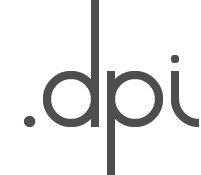The Boy Who Could Change the World: The Writings of Aaron Swartz (2015)
Filed under book | Tags: · code, copyright, hacking, hacktivism, intellectual property, internet, internet activism, open access, web

“The writings of the computer genius and Internet hacktivist whose tragic suicide shook the world
In January 2013, Aaron Swartz, under arrest and threatened with thirty-five years’ imprisonment, committed suicide. He was twenty-six. But in his short life he had changed the world: reshaping the Internet, questioning our assumptions about intellectual property, and creating some of the tools we use in our daily online lives. He was also a leading critic of the politics of the Web.
In this collection of his writings that spans over a decade, Swartz displays his passion for and in-depth knowledge of intellectual property, copyright, and the architecture of the Internet. The Boy Who Could Change the World contains the life’s work of one of the most original minds of our time.”
With an Introduction by Lawrence Lessig
Publisher The New Press, New York/London, 2015
ISBN 162097066X, 9781620970669
368 pages
See also MIT prosecution report.
Comment (0)Gabriella Coleman: Hacker, Hoaxer, Whistleblower, Spy: The Many Faces of Anonymous (2014)
Filed under book | Tags: · activism, anonymous, anthropology, ddos, free speech, hacker culture, hacking, hacktivism, internet, internet culture, irc, lulzsec, politics, security, tactics, twitter, web, wikileaks

“A book on the worldwide movement of hackers, pranksters, and activists that operates under the non-name Anonymous.
Half a dozen years ago, anthropologist Gabriella Coleman set out to study the rise of this global phenomenon just as some of its members were turning to political protest and disruption (before Anonymous emerged as a player in the battles over WikiLeaks, the Arab Spring, and Occupy Wall Street). She ended up becoming closely connected to Anonymous and the story of her inside-outside status as Anon confidante, interpreter, and erstwhile mouthpiece forms one of the themes of this engrossing book.
The narrative brims with details unearthed from within a notoriously mysterious subculture, whose best-known tricksters – such as Topiary, tflow, Anachaos, and Sabu – emerge as complex, diverse, politically and culturally sophisticated people. Propelled by years of chats and encounters with a multitude of hackers, including imprisoned activist Jeremy Hammond and the double agent who helped put him away, Hector Monsegur, Hacker, Hoaxer, Whistleblower, Spy is filled with insights about digital activism and little understood facets of culture in the Internet age, including the history of “trolling,” the ethics and metaphysics of hacking, and the origins and manifold meanings of “the lulz.””
Publisher Verso Books, London and New York, November 2014
Creative Commons BY-NC-SA license
ISBN 1781685835, 9781781685839
452 pages
via Marcell
Reviews: Astra Taylor (Bookforum, 2014), Jamie Bartlett (Guardian, 2014), Hannah Kuchler (Financial Times, 2014), David Gilbert (IB Business Times, 2014), Haley Mlotek (National Post, 2014), Publishers Weekly (2014), Kirkus Reviews (2014), Nathalie Maréchal (Int’l J of Communication, 2015), Maxigas (Krisis, 2015).
Commentary: João Biehl & Naomi Zucker, Haidy Geismar, Adam Fish & Luca Follis, Tom Boellstorff, Gabriella Coleman (J Ethnographic Theory book symposium, 2015).
Debate with Gabriella Coleman, Cory Doctorow and James Bridle, London, 4 Nov
Comment (0).dpi, Feminist Journal of Art and Digital Culture, 27: Hacktivism (2013) [English/French]
Filed under magazine | Tags: · art, feminism, floss, hackerspace, hacking, hacktivism, software, technology

“Founded by artist-run-centre Studio XX in 2004, in Montreal, the publication .dpi has recently undergone a major transformation in order to assert itself as a feminist journal of art and digital culture. In 2013, with continuing administrative and technological support from Studio XX, the journal .dpi became an independent project, with a new platform (beta version) and new team including permanent editor in chief, Sophie Le-Phat Ho, and a new editorial committee composed of Julie Alary Lavallée, Amber Berson, Esther Bourdages, Christina Haralanova, Corina MacDonald, Katja Melzer, Candace Mooers and Deanna Radford.
In a time when social gains are threatened, funding for artist-run-centres is precarious, and the need for intelligent critique is urgent, the new crew at .dpi wishes to respond to a real need for the creation of an interdisciplinary community of those at once curious and critical of technologies, feminisms and art.
Bringing together a dozen local and international participants, .dpi 27 presents a themed section on hacktivism coordinated by Christina Haralanova, a feminist activist and researcher who is interested by freedom in technology and open-source software. Hacktivism: the Art of Practicing Life and Computer Hacking for Feminist Activism brings together unique perspectives and critiques of the current state of hacktivism, a fusion of hacking and activism.”
Published in Montreal, April 2013
ISSN 1712-9486
View online (HTML articles, English)
View online (HTML articles, French)
Download h4x0rd version of the issue by Linda Hilfling (PDF, leetspeak English)
View past 26 issues (English)
View past 26 issues (French)

